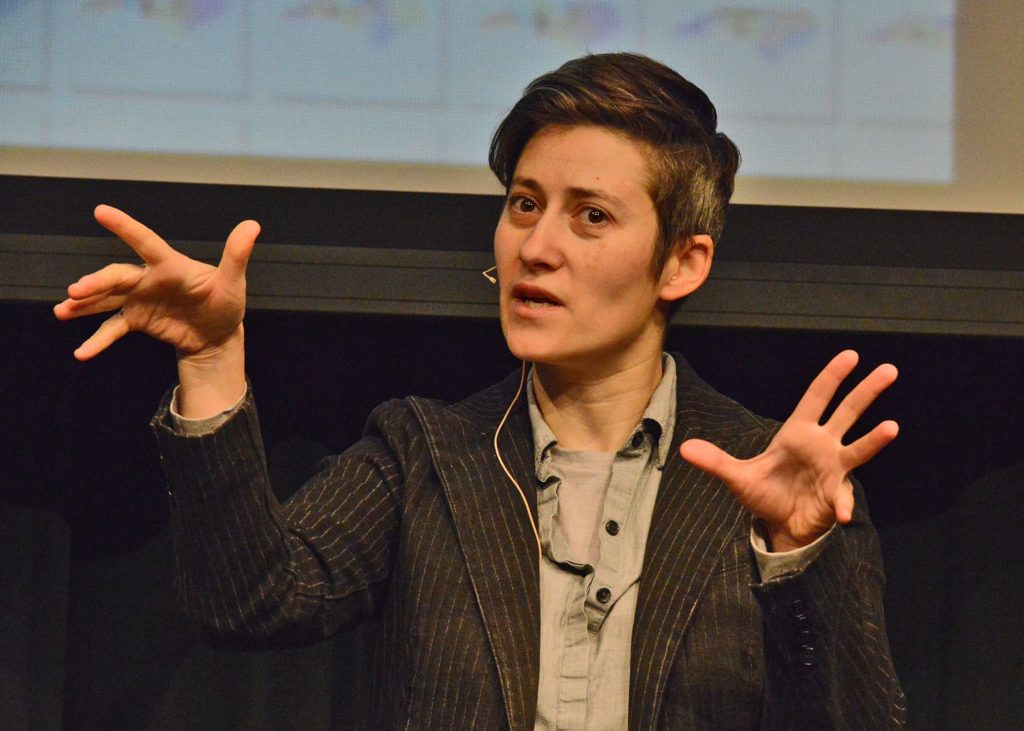Metric Geometry and Gerrymandering: Prof. Moon Duchin
Earlier this month, a panel of federal judges—for the first time—blocked a congressional redistricting map because they believed North Carolina lawmakers had drawn the map seeking political advantage. On 25 January, the school heard from Professor Moon Duchin on the subject of gerrymandering (the practice of manipulating the shape of electoral districts to benefit a specific party, which is widely seen as a major contributor to government dysfunction) and the work of The Metric Geometry and Gerrymandering Group, which studies applications of geometry and computing to U.S. redistricting. Part of that work is training scholars from a variety of quantitative backgrounds to serve as expert witnesses and consultants in redistricting cases. Her goal is to harness computing power to generate massive numbers of maps that describe fair districts.
Moon Duchin is an associate professor of math and director of the Science, Technology and Society program at Tufts. She realized last year that some of her research about metric geometry could be applied to the problem of gerrymandering. Professor Duchin majored in mathematics and women’s studies at Harvard and earned her doctorate in mathematics at University of Chicago. At Tufts her research focuses on geometric group theory and topology, with tools from dynamics. She combines her mathematical background and expertise with interest and application in history, philosophy, culture of science, and civil rights. She has worked and lectured not only on geometry and discrete math, but also on topics such as the role of intuition and the nature and impact of ideas about genius.
After Hall Prof. Duchin discussed her topic further with interested students, and then joined John Lieb’s Advanced Math Topics class.

